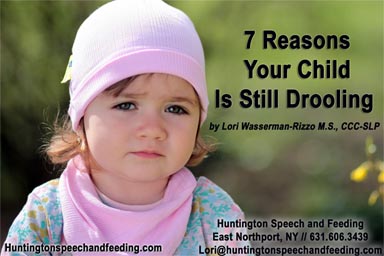
Excessive Drooling In Toddlers. It is normal for infants and toddlers to drool as part of their oral-motor development as well as with the eruption of new teeth. But if you notice excessive drooling or have any other concerns consult your childs doctor. If you think allergies or an infection may be behind your excessive drooling start with a visit to your primary care provider. Occasionally additional tests can be helpful including swallowing evaluations done jointly between the Speech Pathologists and Radiologists where the child is examined with x-ray imaging during the act of.

Treatment improves childrens quality of life and reduces their care burden. Andor trouble controlling liquid in the mouth. This drooling behavior typically. Only about 06 is accounted for as chronic excessive droolers. During infant and toddler teething years drooling is quite normal. Excessive drooling is considered as one of the early symptoms of neurological disorders especially autism.
Drooling is an everyday issue for parents of infants and toddlers especially when their child is teething or has a cold and is congested.
It is normal for infants and toddlers to drool as part of their oral-motor development as well as with the eruption of new teeth. But if you notice excessive drooling or have any other concerns consult your childs doctor. Children can have anterior or posterior drooling ie drooling from mouth to face or spillage to airways windpipe. In children drooling is a normal part of development. Is excessive drooling associated with autism. If the condition is persistent you may need to see a physician who specializes in treating ear nose and throat ENT conditions.